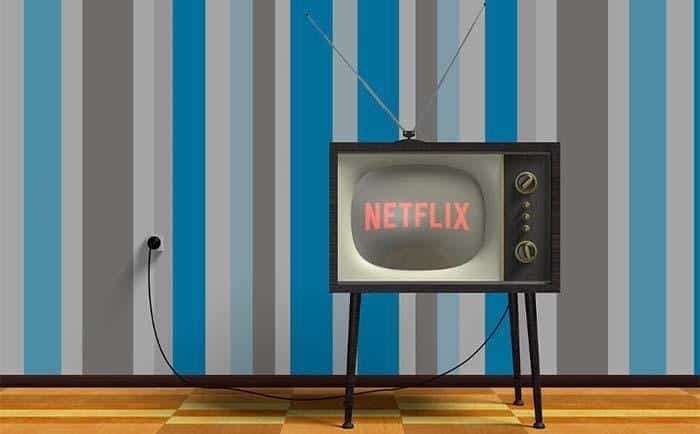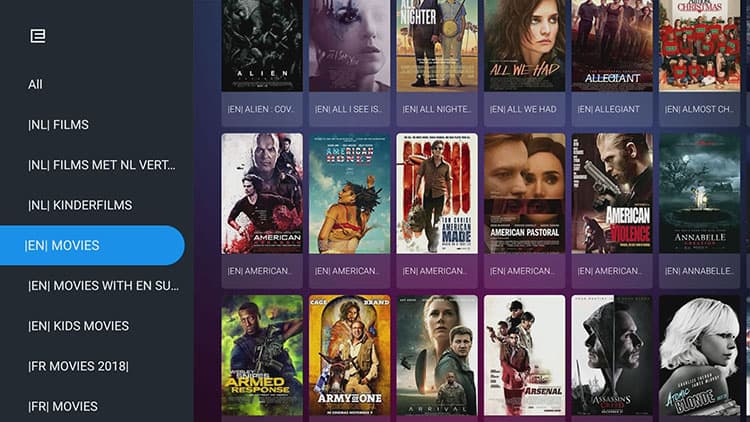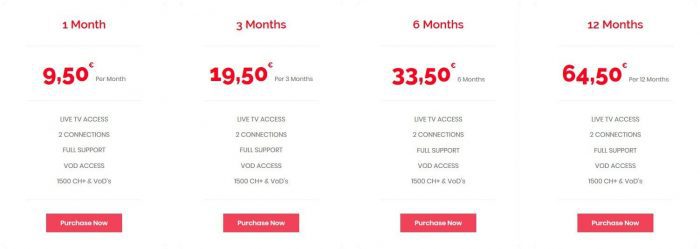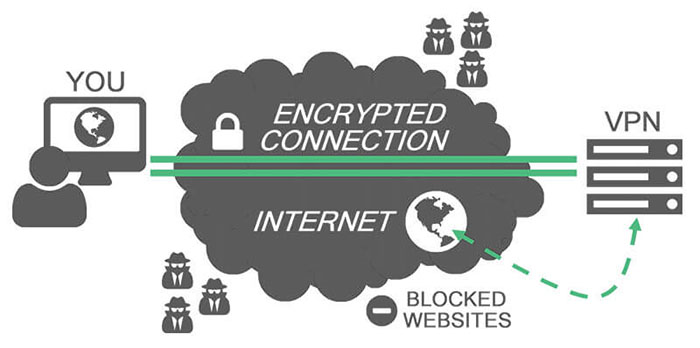Each day more and more people are discovering alternative means to their basic cable or satellite programming. Thanks to the dominating rise of streaming services like Netflix, the world is waking up to different ways to get their televised content. IPTV is merely one of the many extra options that offer people a new method of TV viewing.
But unlike Netflix or Hulu, IPTV is relatively obscure and not too many people know much about it in the first place. To make things more complicated, the legality of IPTV has been brought into question. People aren’t sure how legal and therefore how safe it is to use. That’s why we often hear the question: Is IPTV legal?
Below we’ll discuss the basics of IPTV as the odds are that many of our readers are still in the dark on what exactly it does that conventional TV viewing doesn’t accomplish. We’ll also discuss all the ins and outs of IPTV’s legality as well as methods to help you complete your setup if you choose to get into the world of IPTV.
What is IPTV?
IPTV is an acronym that stands for Internet Protocol Television. The simplest definition is that IPTV refers to any kind of televised content that is acquired through an internet connection rather than through conventional methods such as cable, OTT antennas (Over The Air) or satellite dishes. By definition, Internet Protocol Television includes well-known streaming platforms such as HBO’s streaming service or the titan of online libraries that is Netflix.

Arguably the biggest reason why IPTV is fast replacing conventional methods of television services is simply due to the price. Online subscriptions have proven to have much lower monthly fees than your typical cable or satellite service providers. Also, requiring a separate set top box just is not convenient for consumers who already have smart TVs, phones and computers, all very capable of streaming up to 4K video and live TV.
Cable and satellite have their own benefits, but they are simply outweighed by the costs. Many IPTV services have monthly fees that cost a fraction of a cable or satellite bill. And since online streaming services are becoming more and more popular, and are having increasingly larger catalogs of content, it doesn’t take much to realize why so many people are switching over or are at least thinking of switching. A comparable live TV and video on demand experience for a fraction of the cost? Yes, please!
Despite its growing popularity, there are still many people who are sitting on the fence and most of it is due to the muddy waters that IPTV still rests in. Many people still can’t discern whether IPTV is legal or not. So let’s set the record straight on the legal status of this undeniably convenient tool once and for all.
Is IPTV Legal or Illegal?
You may already be thinking to yourself why anyone would ask if IPTV is legal? It’s obvious that places like Youtube and Netflix are clearly legal, so therefore IPTV must be totally okay to use, right?
Unfortunately, things are not so simple. If they were then few people would be bothering to ask the question in the first place.
So, is IPTV Illegal? IPTV is legal as long as it follows and obeys the rules of copyright infringement laws. In this sense, asking whether IPTV is legal is very much like asking whether downloading data off of the internet is legal or not. The problem with such a question is that it is too broad to warrant a simple yes or no.
When does IPTV follow the rules? Well, pretty often actually. As implied earlier, just look at Netflix, Hulu, HBO Go, Amazon Prime Video, Youtube and several other examples of famous online streaming platforms. Millions of people worldwide use these services with absolutely no issue whatsoever.

When does IPTV not follow the rules? This is a harder question to answer as while it is usually pretty clear when IPTV is legal it only gets murky when it becomes less legal.
When IPTV service providers acquire their content in illegal fashions such as spreading or streaming content that they do not legally have the right to (either through licensing, ownership, or some other way), then they are infringing on copyright laws and are breaking the law. The problem for viewers and customers is that it isn’t always obvious when service providers are doing so. For obvious reasons, these companies do not publicly state or advertise when they are breaking the law.
In order to be able to figure out when IPTV services are breaking the law, we’ll have to go through a breakdown of the different kinds of Internet Protocol TV services and what makes them different from each other.
What Are the Different Kinds of IPTV?
As you may have gathered already, IPTV is actually quite the broad term. It encompasses a lot of different styles of companies, streaming services, devices, and subscription plans.
Android TV Box Bestsellers
This is actually one of the bigger reasons why it can be so difficult to discern between the legal and the illegal forms of IPTV. Someone might just innocently assume that one form of IPTV is perfectly legal because the other ones they’re using are legal too. They could end up doing something unethical and not even realize it. That’s why it’s important to be able to distinguish between what is accepted and what is not.
Learning how to recognize legal IPTV services from illegal ones is actually not too complicated. That’s because a lot of the complicated work has already been done for us. This is partially due to the fact that IPTV services, both legal and illegal, are more popular today than they have ever been in history.
Again, IPTV platforms are not legal if they are reproducing content they do not have the rights to as stipulated by DMCA laws (Digital Millennium Copyright Act). That means that all you have to do to figure out whether something is disobeying DMCA laws is to try and recognize a few key patterns that exist among many illegal IPTV services.
What is Video On Demand?
For one thing, IPTV comes in a few different forms outside of the jargon of legal vs. illegal for this context. Many IPTV services are designated as VODs which stands for Video On Demand. These are platforms that allow you to stream content whenever you want and have no set or fixed schedule. Netflix and Youtube are by far the biggest examples of VOD platforms.
Many streaming platforms and Internet Protocol Television providers nowadays include video on demand. These almost considered a standard feature even for platforms that mainly focus on live television content. This is mostly due to the convenience it provides to customers, allowing them to watch their favorite video content whenever and wherever they want.

What Are Live Broadcaster?
Another popular category of IPTVs are live broadcasters. These days it’s becoming more popular to live steam content from the internet as opposed to watching them through a cable or satellite hookup. This is especially done with programs like the news or major sports events. Live broadcasting isn’t as popular as on-demand services but they are growing and it looks like they are here to stay.
What is IP Casting?
One last category to keep in mind is something called live internet simulcasting, though it tends to go by other names such as live IP or IP casting. This is similar to officially licensed live broadcasting but has a few key differences. This method actually streams content live from another source whereas live broadcasting is its own source (the BBC’s iPlayer is a popular example of this).
Please keep in mind that all three of these categories do not necessarily tell you whether a service is illegal, or more specifically whether it is breaking DMCA laws. But the reason it is useful to note these different categories is that they often act as clues to whether something is illegal or not.
How You Can Tell if an IPTV Service is Legal
When it comes to VODs, one might stumble upon an obscure media player that is free to download, or comes with a one-off subscription price. This is a common trend among IPTV services that are not abiding by DMCA laws even though they do not openly say so.
Slow Streams or Buffering?
Are your streams loading too slow? Getting constant buffering? Not able to stream at full resolution? Check out these tips to improve your streaming experience:
- Use a modern Router that has advanced features like QoS to prioritize video content. Check out our recommended Routers for Streaming.
- If you are using a Wifi connection, be sure to check out our 9 easy steps to improve your Wifi for Streaming.
- Some Internet Service Providers throttle video streaming traffic without telling their customers. A VPN encrypts all your traffic and circumvents throttling, blocking and geographical restrictions.
One thing to notice is that legal services such as Netflix have a monthly fee attached to them, but many other IPTV programs are either completely free or merely ask for a one-time payment. While this is not an ironclad rule, it is, however, a good rule of thumb. Many illegal IPTV services follow this modus operandi.

Another thing to keep in mind is the existence of devices that are called IPTV boxes. Many such brands exist today and are designed to work with a variety of IPTV subscriptions, both legal and illegal. It might seem hard to be able to discern which of these IPTV boxes are legal or not but more often than not if the product is advertised as “fully loaded” or something along those lines, it is likely implying that it is compatible or even preconfigured with illegal IPTV plans.
Should You Consider Using Alternative IPTV Services?
American citizens should also note that their laws are actually a little different compared to other regions of the world such as the United Kingdom. It is actually not technically illegal to view content that is breaking DMCA laws.
Distribution is What’s Illegal, Not Simply Viewing Streams
What is actually illegal is being the person who redistributes them and broadcasts them to an audience. So for example, viewing content from an illegal IPTV service is technically not disobeying the DMCA. However, downloading such content and then sending the files to others or posting it online would, in fact, be in violation of the DMCA.
While we do not advocate breaking the law, there is no question that various IPTV services are in fact highly convenient. If you so choose to get involved with alternative IPTV platforms then there are a few things that you should know.
VPNs Offer Extra Security
Arguably the most important thing you can do for yourself in this scenario is to acquire a VPN if you don’t already have one. VPN stands for virtual private network. It is a protocol that masks your true IP address when browsing the internet or downloading data. There are several VPN services available, and many of them offer free trials that last up to 30 days. Some VPNs are entirely free of charge but the best ones come with a monthly fee that is usually quite affordable.

VPNs are an important thing to have when engaging with IPTVs. For example, you may not be intending on breaking any laws but as we have already discussed the subject of IPTVs is complicated at times. Many people just want to have access to media content at a fair and cheap price. A VPN is a great security blanket that will protect you in case you accidentally break any DMCA laws without even realizing it.
Having said all of that, the safest thing you can actually do if you are still feeling uncertain would be to stay away from these alternative IPTV services altogether. Sticking with verified apps or websites like Netflix, which isn’t even very expensive in the first place, seems to be a perfectly viable option for millions of people worldwide.
However, if you do want to easily venture into the sometimes confusing world of IPTV services (I won’t judge you), check out some of my recommendations.
Concluding Thoughts
Thank you for reading our in-depth analysis of the legality of IPTV services. There is a lot to take in but we hope you have come out of this with a greater understanding of Internet Protocol Television.
In terms of content legality, it’s always good to know where the player or site you’re streaming your TV shows and movies stands. IPTV services are certainly on the up and up, so expect to see more of them popping up in the future. So if you’re going to use one you aren’t so familiar with, be sure to use a VPN to be absolutely safe until you figure out its official legality.
This blog does not constitute legal advice and does not establish an attorney-client relationship. If you need legal advice, please contact a lawyer directly.